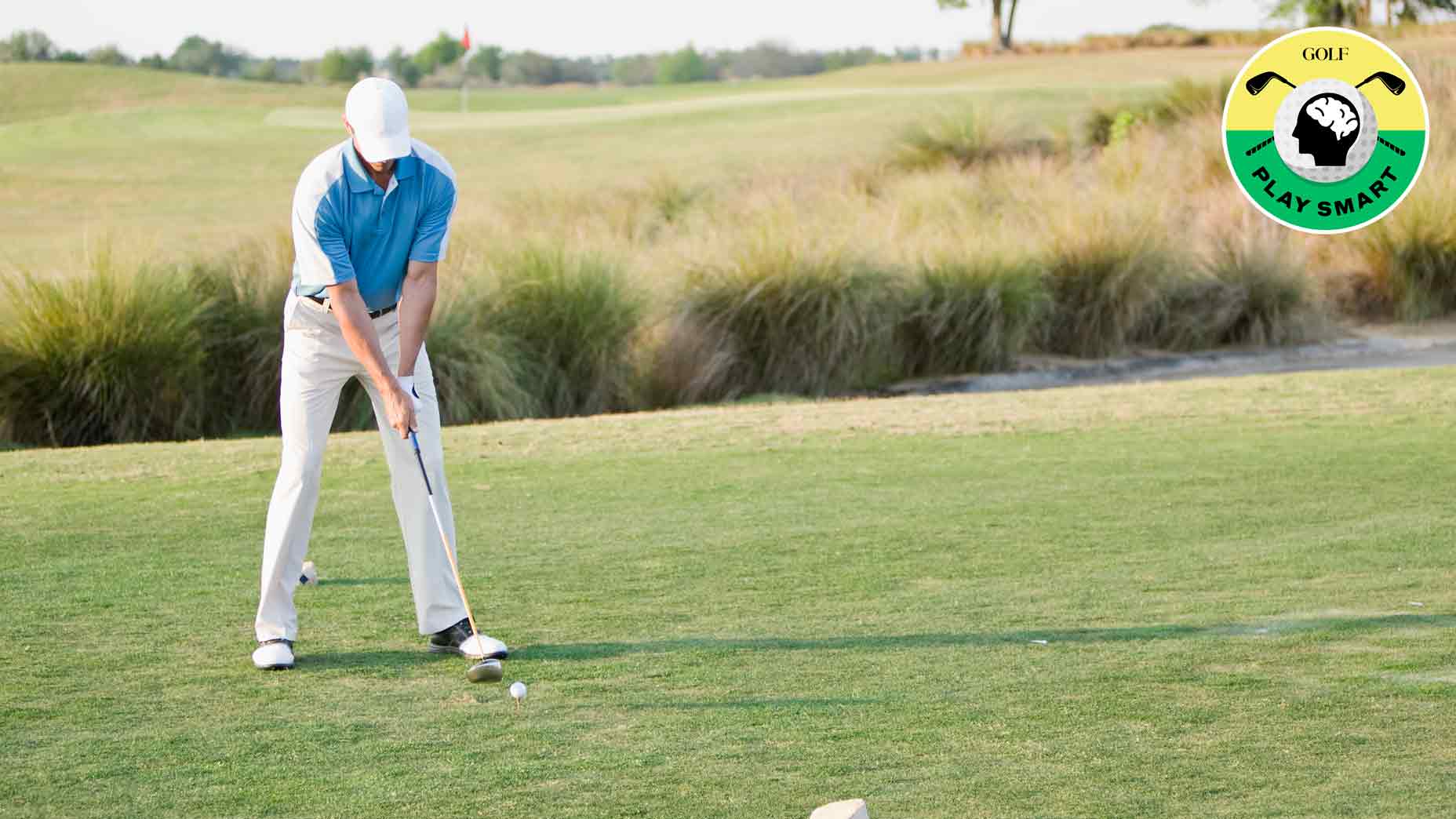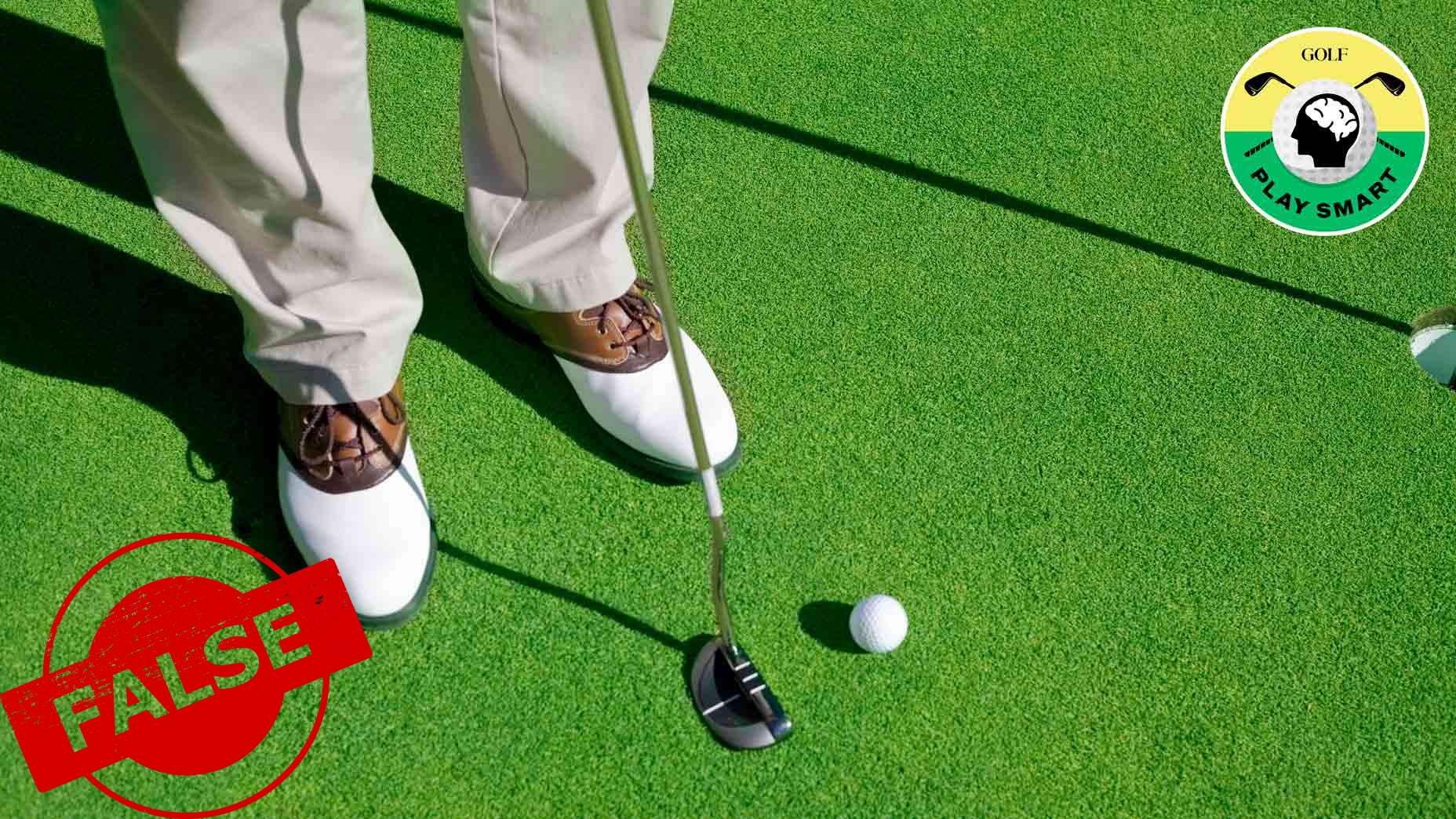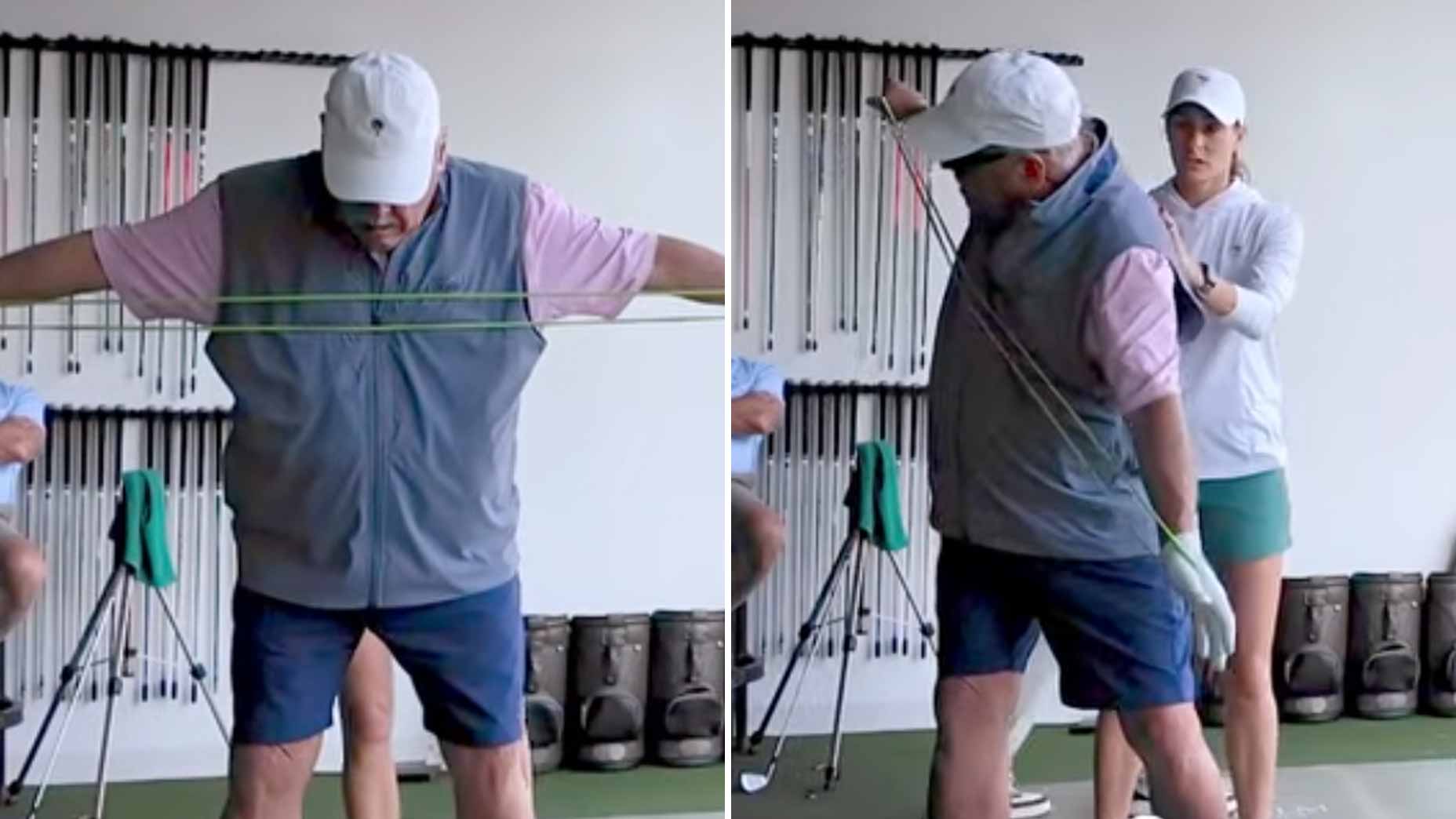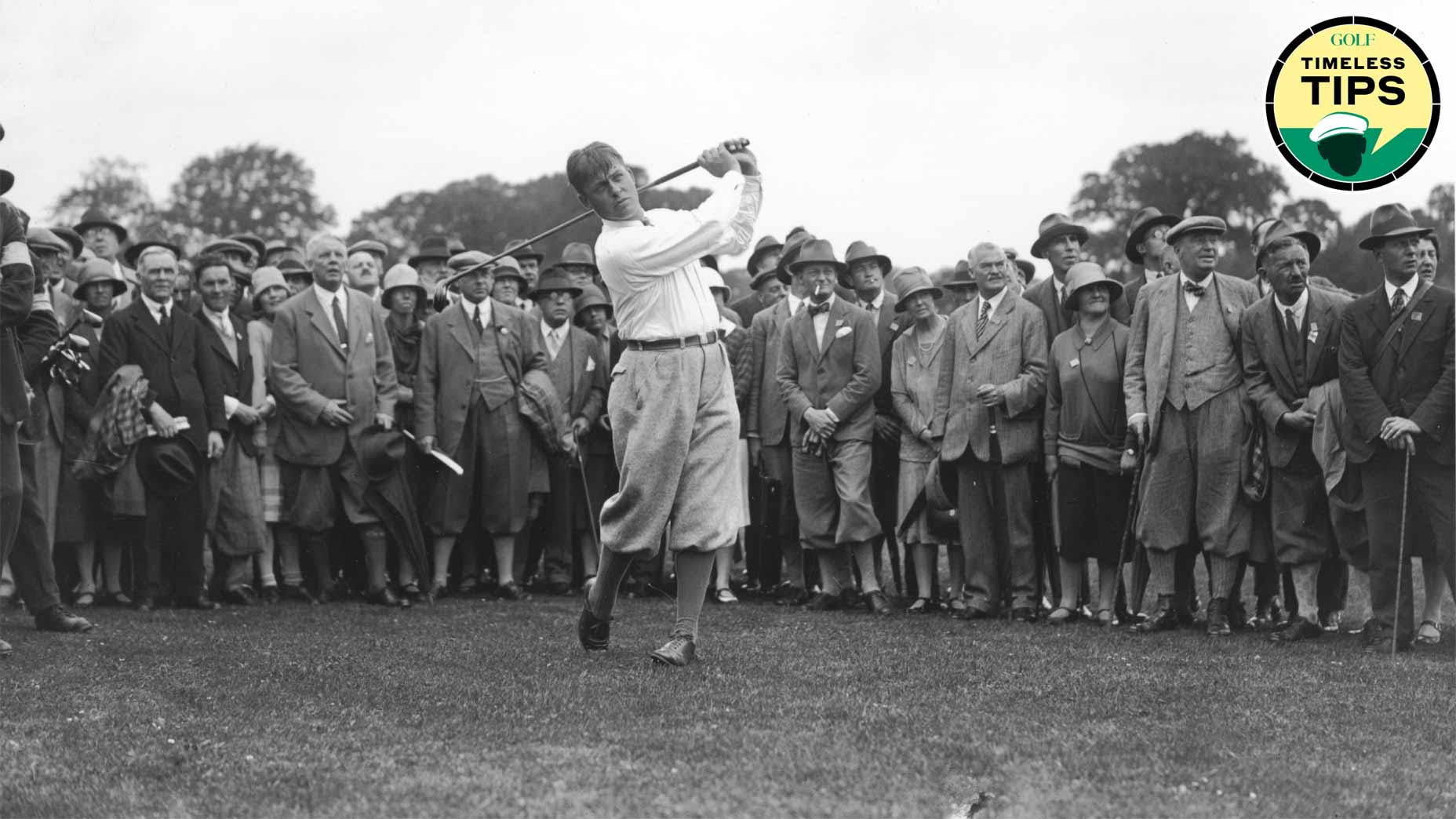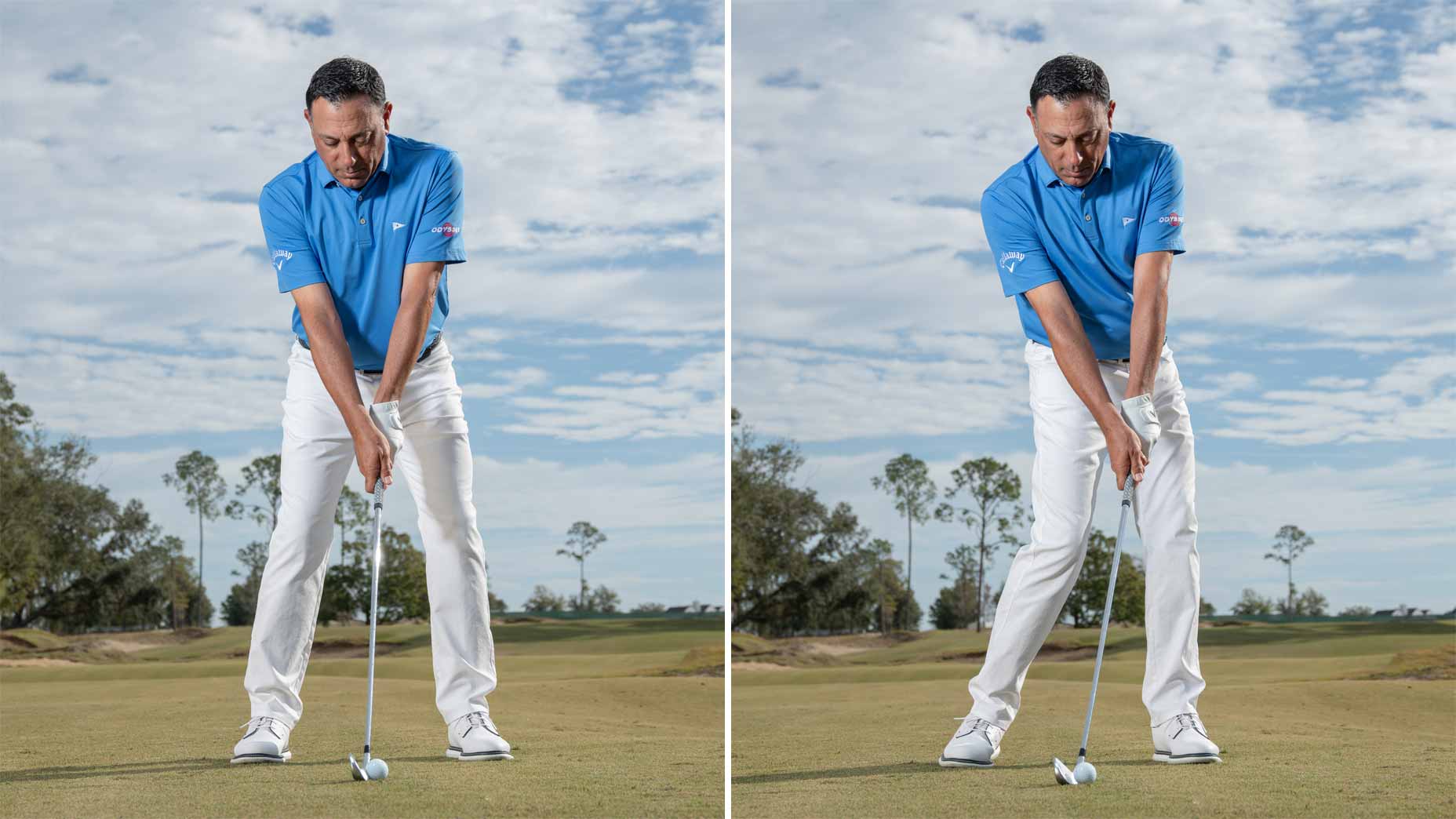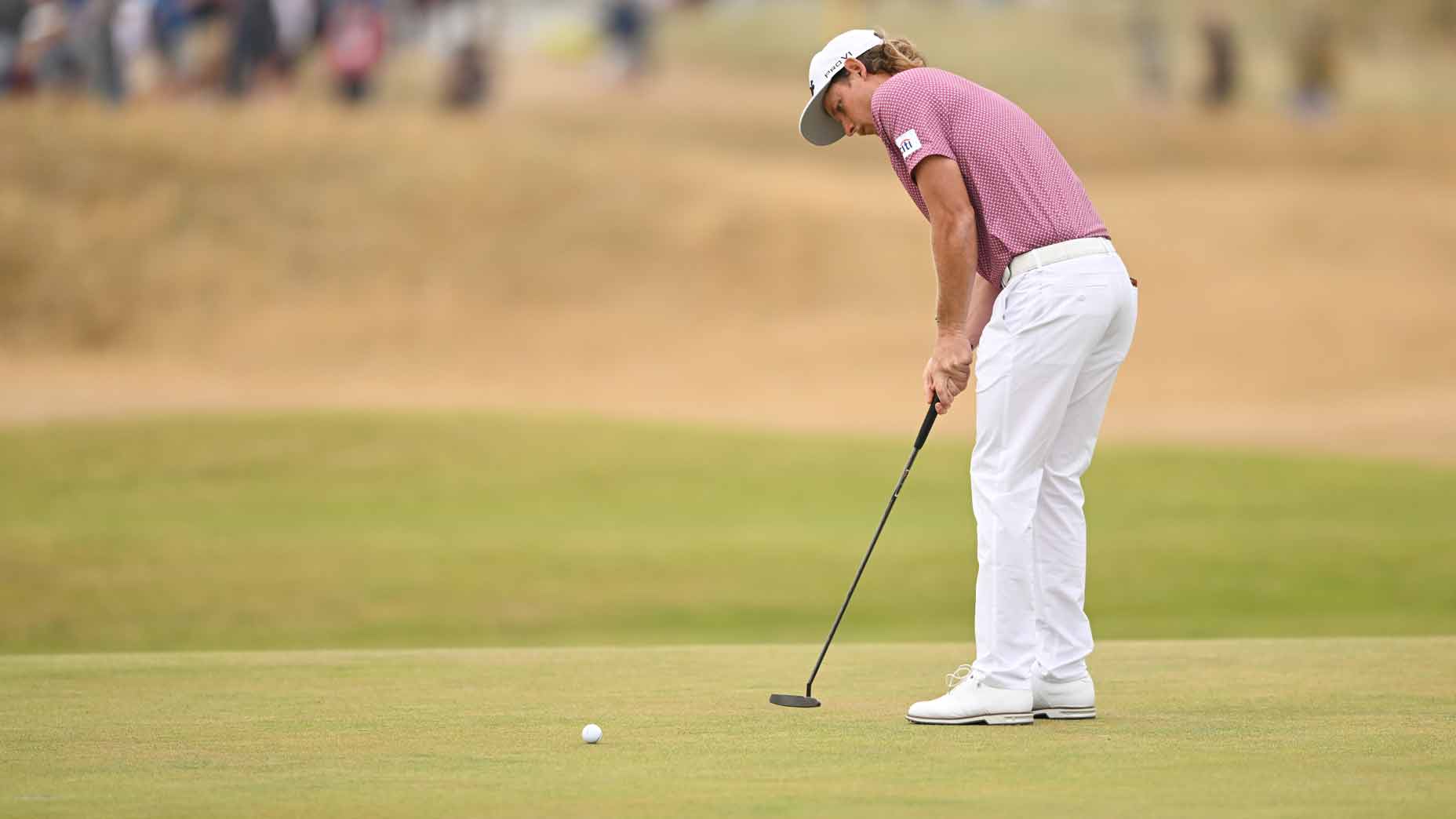Welcome to Play Smart, a regular GOLF.com game-improvement column that will help you play smarter, better golf.
Many amateur players often wonder how far to stand from the golf ball — especially since it’s different for each club in your bag.
For instance, you generally stand a little bit farther back when using your driver, making sure you’re able to extend the arms and get the necessary rotation in order to generate clubhead speed to launch it. This differs from using a wedge around the green, where you may find yourself standing a little bit over the top of the golf ball at address.
Since golf sure can be a confusing game, GOLF Teacher to Watch Todd Casabella provides some tips to help understand how far you should stand from the golf ball.
Where your golf ball position should be while putting, according to a Top 100 TeacherBy: Nick Dimengo
According to Casabella, he sees many amateurs struggle with club positioning, which then leads them to adjust both their feet and posture to try and accommodate.
“This is backwards,” he adds. “You must first learn how to properly create your golf posture and then learn where the ball should be positioned.”
But by following his tips below, you’ll have an easy way of practicing your setup posture and perfecting your ball position on the golf course. Give it a look!
How far to stand from golf ball
First, Casabella demonstrates the drill while standing on the practice range — just to help players get the feel for the right positioning prior to heading out to the first tee box.
Practice on the range
1. Target
Pick out a target and set up an alignment stick parallel to the target line. Then position a second alignment stick between your feet and in the middle of the other one, which will create a ‘T’.
Next, put two tees in your pockets.
2. Posture
Holding a golf club in the air, setup to the right and left of the ‘T’.
Now get into good golf posture, with your hips over your ankles, knees over the balls of your feet, and bending slightly forward from the hips.
While maintaining this posture, put the club on the ground behind where the ball would be in your stance.
3. Ball Placement
Grab one of the tees from your pocket, and put it in front of the center of the clubface. Now, place the other tee approximately a clubhead outside of the first tee.
Place a ball on the tee — as if you’re playing a par-3 hole — and go through your pre-shot routine before getting back into your golf posture. You should feel the same as you did before placing the tees in the ground.
Finally, practice hitting balls off of this tee to get the feel of a consistent setup.
Taking it to the course
When you go out to play and begin to address the golf ball, Casabella says to “hold the club in one hand and place it behind the ball. Before putting the second hand on the club, get into good posture.”
An important thing to remember is the pressure in your feet, as Casabella tells most students, “your foot pressure is the indicator to correct posture and setup.”
1. Too far from the ball
As you place the club behind the ball at address, if you feel your pressure move out to your toes, your arms move out away from under your shoulders, and/or your head moves down, you’re too far away from the ball.
Instead, move your feet closer to the ball and get back into your correct posture.
2. Too close to the ball
If your arms move closer into your legs, you feel your pressure move into your heels, and/or your head move up, then you’re in too close.
Instead, move your feet away from the ball and get back into your correct posture feels.
At first, this drill might be difficult — and you may have to fidget around quite a bit. However, setting up to the golf ball properly with consistency is a key element to repeatable and predictable ball flight.
So try it out on the practice range first before applying it to your next round. After a while, you’ll begin to feel more comfortable and your ability to adapt to the different club lengths will become second nature.
